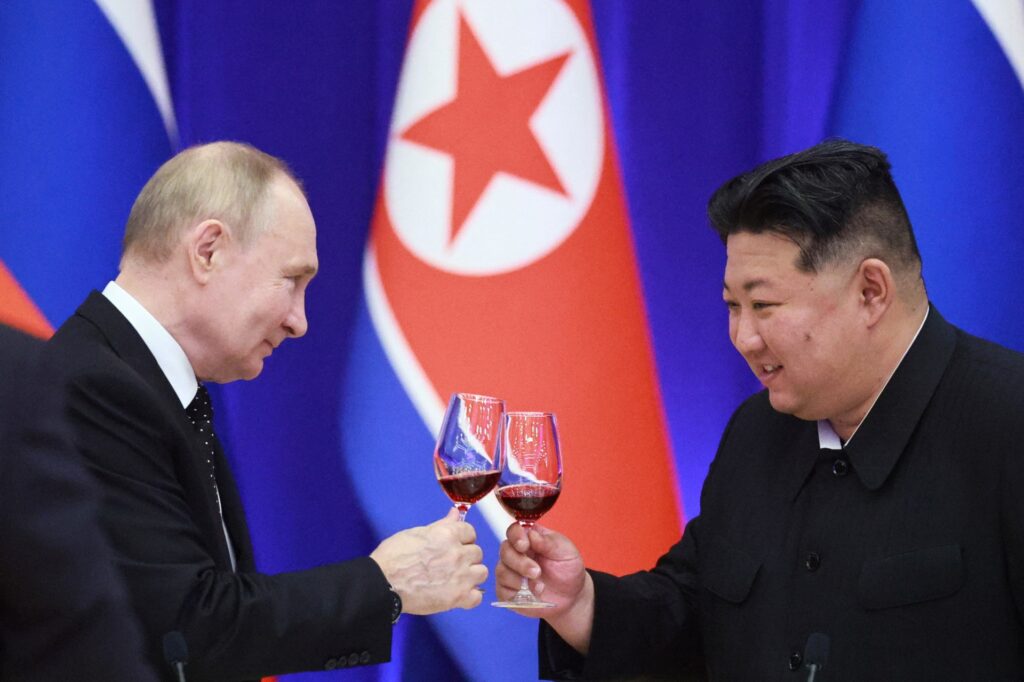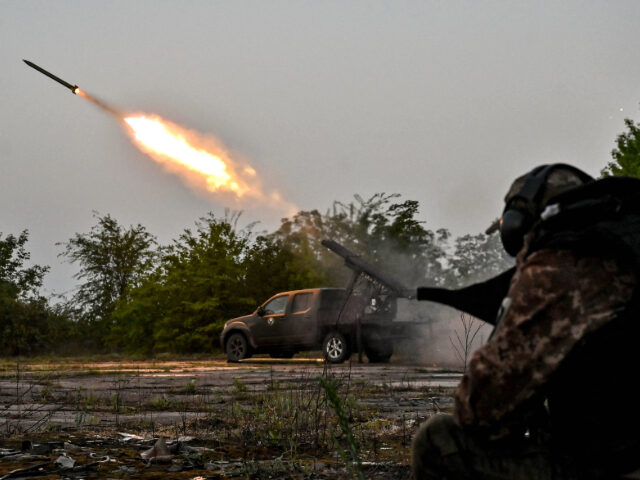The office of South Korean President Yoon Suk-yeol on Thursday expressed “grave concern” about North Korea’s mutual defense pact with Russia and said South Korea may consider supplying arms to Ukraine as part of its response.
“We emphasize that any cooperation that directly or indirectly helps North Korea increase its military power is a violation of U.N. Security Council resolutions and is subject to monitoring and sanctions by the international community,” said the statement from Yoon’s office on Thursday:
In particular, Russia, which led the resolution on sanctions against North Korea as a permanent member of the U.N. Security Council, is harming our security by violating the resolution and supporting North Korea, which will inevitably have a negative impact on South Korea-Russia relations.
The presidential statement said South Korea would seek to “further strengthen the extended deterrence of the South Korea-U.S. alliance and the South Korea-U.S.-Japan security cooperation system to neutralize North Korea’s nuclear weapons and missiles” now that Russia has acted to make North Korea even more of a threat.
Russian President Vladimir Putin signed the defense pact with North Korean dictator Kim Jong-un during Putin’s visit to Pyongyang on Wednesday. The pact represents a dramatic revision of Russia’s policy on North Korea, establishing what Putin described as a “comprehensive partnership” that would “provide for mutual assistance in the event of aggression against one of the parties.”

Russian President Vladimir Putin and North Korean leader Kim Jong-un toast during a reception at the Mongnangwan Reception House in Pyongyang on June 19, 2024. (VLADIMIR SMIRNOV/POOL/AFP via Getty Images)
This would be a significant upgrade from the “friendship treaty” Russia signed with North Korea in 2000. The earlier treaty specifically omitted the pledge for mutual military intervention that was part of the defunct Soviet Union’s 1961 treaty with North Korea.
Putin justified forging such a relationship with the horrific nuclear-armed dictatorship in Pyongyang as a response to Western powers providing Ukraine with advanced weapons to resist the Russian invasion.
“In connection with this, Russia does not exclude for itself the development of military-technical cooperation with the Democratic People’s Republic of Korea,” Putin said, using the North Korean tyranny’s preferred name for itself.
Kim Jong-un hailed the pact as a “strictly peace-loving and defensive” union of the two countries and declared his “unconditional support” for all of Putin’s policies, explicitly including the brutal Ukraine invasion.
The full text of the defense pact, released to the public on Thursday by the North Korean government, obliges North Korea and Russia to provide each other with military assistance if either comes under attack. Both despotic governments have extremely broad definitions of what would constitute an “armed invasion” against them.
Some observers thought Kim was reading more into the deal than Putin intended since he spoke of forging a full “alliance” with Russia, while Putin carefully avoided using that term. The bottom line of the agreement, as South Korea seems fully aware, is to pave the way for Russia to obtain more of North Korea’s massive inventory of conventional weapons and ammunition to use against Ukraine — and Russia may well decide to pay for those munitions by helping North Korea with its flailing nuclear missile program.
The U.S. State Department told South Korea’s Yonhap News on Thursday:
Deepening cooperation between Russia and the DPRK is a trend that should be of great concern to anyone interested in maintaining peace and stability on the Korean Peninsula, upholding the global nonproliferation regime, abiding by U.N. Security Council resolutions, and supporting the people of Ukraine as they defend their freedom and independence against Russia’s brutal invasion.
This clearly signals fears that Russia will help North Korea improve its nuclear weapons.
A South Korean presidential official, speaking anonymously on background to reporters on Thursday, said South Korea’s response could very well include providing the products of its well-developed defense industry to Ukraine.
Until now, South Korea has participated in economic sanctions against Russia and provided Ukraine with humanitarian assistance, but it has a long-established policy of not selling weapons to countries that are actively involved in military conflicts.
The South Korean Foreign Ministry said a full and formal response to Russia’s pact with North Korea would be announced once Seoul finishes “reviewing the specifics of the treaty.”

COMMENTS
Please let us know if you're having issues with commenting.